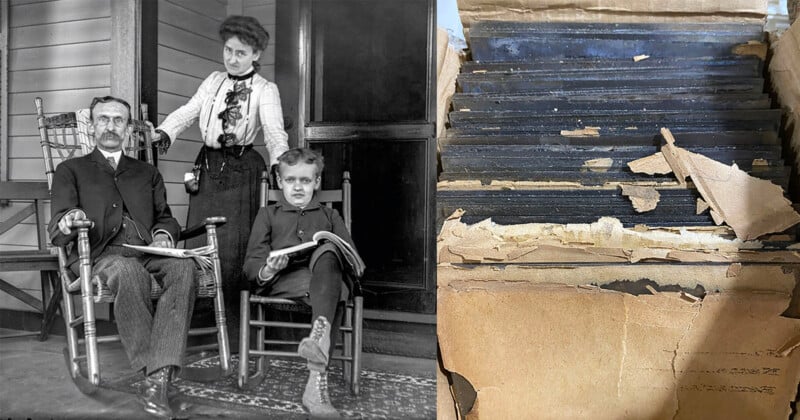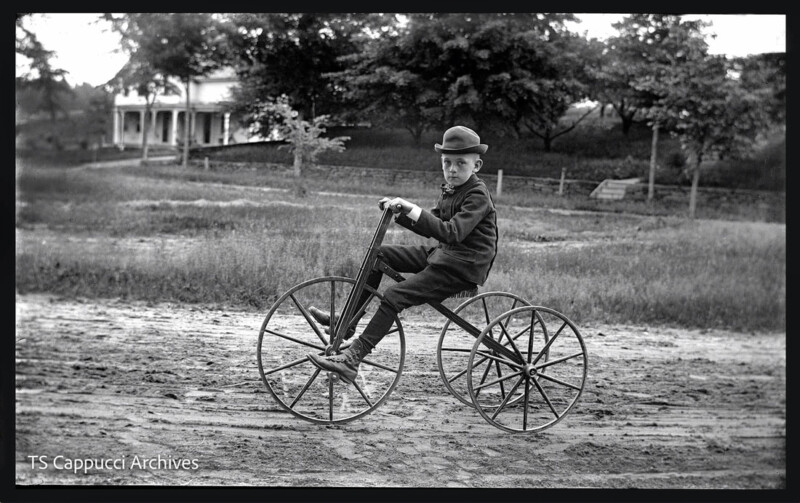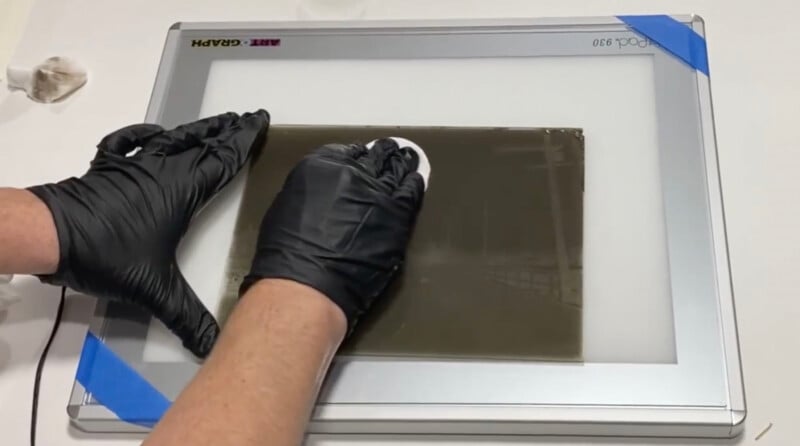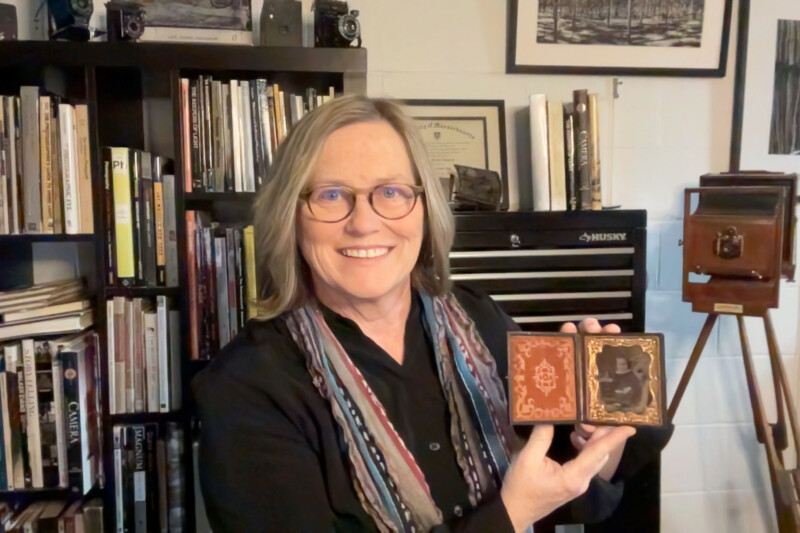Historical New England Photos Destined for the Trash Saved by Photographer

A documentary photographer and photo preservationist painstakingly restored thousands of glass plate photographs that reveal what life was like in New England 160 years ago.
The 4,000 glass slides consisting of full plates, half plates, and quarter plates were taken on large and medium format cameras and were destined for the trash.
That was until the collection came to Terri Cappucci in 2019 — an ideal custodian since Cappucci has experience shooting and developing wet plates and tintypes.
While initially skeptical, Cappucci took them in after seeing the collections’ high quality and realizing most of them were taken in the same area of Massachusetts that she is from.

![]()
![]()
![]()
The earliest photos in the collection are from the 1860s and span to the 1930s. They have been dated through the clothes the subjects are wearing, the tools seen in the pictures, and the general lifestyle that people led in New England at that time.
After spending countless hours restoring the photos — which involved attending courses and starting a GoFundMe page — Cappucci has had her collection accepted by the University of Massachusetts (UMass) Amherst Library.
“I knew that they needed to be cared for because I know when I make my own glass plate negative or positive that the chemistry can be chipped off of it if you’re not careful,” Cappucci tells PetaPixel. “So I didn’t want to get them wet or scratched, they were already seriously damaged.”
So dedicated was Cappucci, who also teaches photography, to restoring the slides she reached out to document conservation experts and even enrolled on a course in Boston.
“It was about preserving historical images,” she explains. “It was one of the best courses I’ve done because I learned so much: Simple things like you don’t store them with regular paper, you don’t store them in regular plastic, you don’t put them in large plastic bins because it gives off gases that affect the coating on these images.
“After I took the class I learned to only use distilled water, you can only clean them with cotton and distilled water and I even got the best cotton for the job.”

![]()
![]()

“I would clean them individually only on the glass side, I wouldn’t touch the emulsion side. Definitely don’t clean them with Windex or anything you would use to clean windows, just distilled water,” she continues
“Sometimes it would take a while to get the streaks off — it was very painstaking. Then I would scan them in and I used the process that the National Archives uses for all of my scanning and I would preserve them in the [acid-free] envelopes I purchased.”
Cappucci’s perfectionist approach to restoring the slides led to her starting a GoFundMe page to help pay for the supplies needed to do the job properly; she raised $7,000.
“This stuff is expensive,” she adds. “The storage boxes, it’s a very tedious process to do correctly.”
![]()
![]()
![]()
![]()
![]()
![]()
![]()
![]()
![]()
Cappucci also set up Somebody Photographed This, a website and Facebook page dedicated to the collection which has proven popular.
“The photos happen to be from the area I was living in,” she explains. “My understanding is one person purchased them at an auction somewhere and never did anything with them, then they passed through someone else, so I was like the third person the collection came to.”
Cappucci lives in Montague, Mass. which is made up of five villages and some of the photos show landmarks still recognizable today.
The collection is now in the hands of UMass where Cappucci graduated from and the institution is selective of what it takes.
“The university’s archive has a wonderful setup and I wanted them to live on forever,” she explains. “I don’t want them being auctioned off again and just disappearing or end up sitting in a bin and rotting.”
The collection can be viewed on its website and Facebook page. Cappucci’s photography work can be seen on her website.
Update 7/11: Following strong interest in this story, Terri set up a fundraiser page for people to support the project.
Disclaimer: Make sure you do your own research into any crowdfunding project you’re considering backing. While we aim to only share legitimate and trustworthy campaigns, there’s always a real chance that you can lose your money when backing any crowdfunded project.
Image credits: Courtesy of Terri Cappucci.